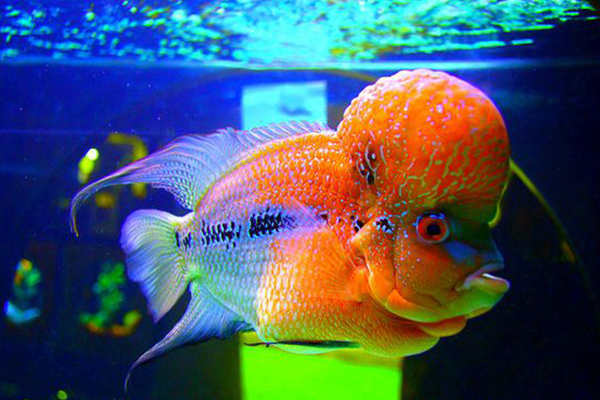By Senzeal | 10 July 2019 | 0 Comments
What If The Fish Does Not Eat?
When your fish shows unusual behavior, such as refusing to eat, this means something unusual is happening. Make sure that the type and amount of food you feed your fish is appropriate for their breed and size. If the problem persists, please consult a marine veterinarian for more information. Here are several reasons for the reference.

During early enteritis, fishes still eat, so most of us cannot see the problem. The symptoms of late enteritis are more obvious, and one symptom is not eating. If the fish has enteritis, it should be specifically distinguished whether it is caused by parasites, or caused by indigestion, or caused by a bacterial infection.
If it is caused by parasites, we should try to expel them. If it is caused by indigestion, then we can use furazolidone to help treatment, it should work in a few days. If it is caused by a bacterial infection, it is more difficult to deal with. The infected fish can be firstly treated with norfloxacin until the symptoms of bloating disappear. It can also be disinfected with coarse salt. Of course, oxytetracycline copper sulfate is also possible.

Fishes may not eat as much as they did before giving birth. If you suspect that your fish is pregnant, transfer it to a breeding pond where it has privacy and protection, and a safe fertility environment. Typical signs of fish pregnancy include abdominal swelling and black triangle spots on the lower fin. You can even see the black spots of the eyes through the body of the pregnant fish.

Fear can stop fish from eating. This is often the case in large aquariums including many fishes, where large and more aggressive fish can scare away smaller, more docile fishes when they compete for food. To help alleviate this problem, we can feed them more food to reduce competition for limited food resources.

Pay attention to your fish when you feed them. If you feed them too much, it may not eat food. Make sure you provide the right amount of fish food. If the vet has ruled out its health problems, try changing other fish foods according to their breed to see if they will eat again.
1. Enteritis

If it is caused by parasites, we should try to expel them. If it is caused by indigestion, then we can use furazolidone to help treatment, it should work in a few days. If it is caused by a bacterial infection, it is more difficult to deal with. The infected fish can be firstly treated with norfloxacin until the symptoms of bloating disappear. It can also be disinfected with coarse salt. Of course, oxytetracycline copper sulfate is also possible.
2. Pregnancy

3. Fear

4. Overfeeding

Leave a Reply
Your email address will not be published.Required fields are marked. *
CATEGORIES
- Aquarium Knowledge
- Aquarium Fishes
- Aquatic Plants
- Other Aquatic Creatures
- Best Aquarium Products
- Aquarium Light
- Aquarium Feeding Knowledge
- Fish Tank & Turtle Tank
- Aquarium Cleaning
- Fish Breeding
- Aquarium Heater
- Aquarium Filtration
- Planted Tank CO2
- Aquarium Decoration
- Shrimp Knowledge
- Aquascaping
- Algae
- Guppy
- Goldfish
- KOI
- Turtle
- Angelfish
- Betta
- Arowana
- Anemone
- Snails
- Fish Keeping
- Tropical
- CAT
- DOG
- BIRD
TAGS